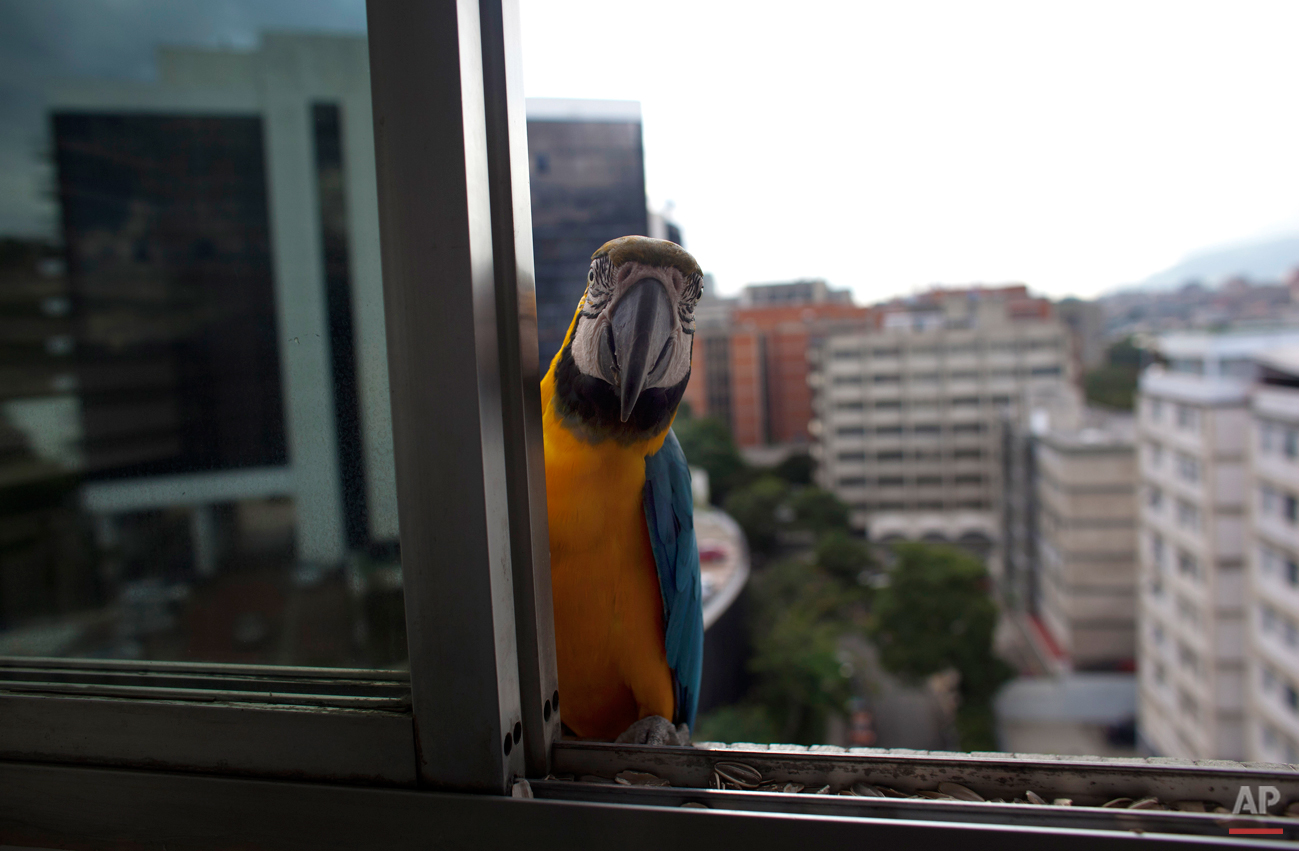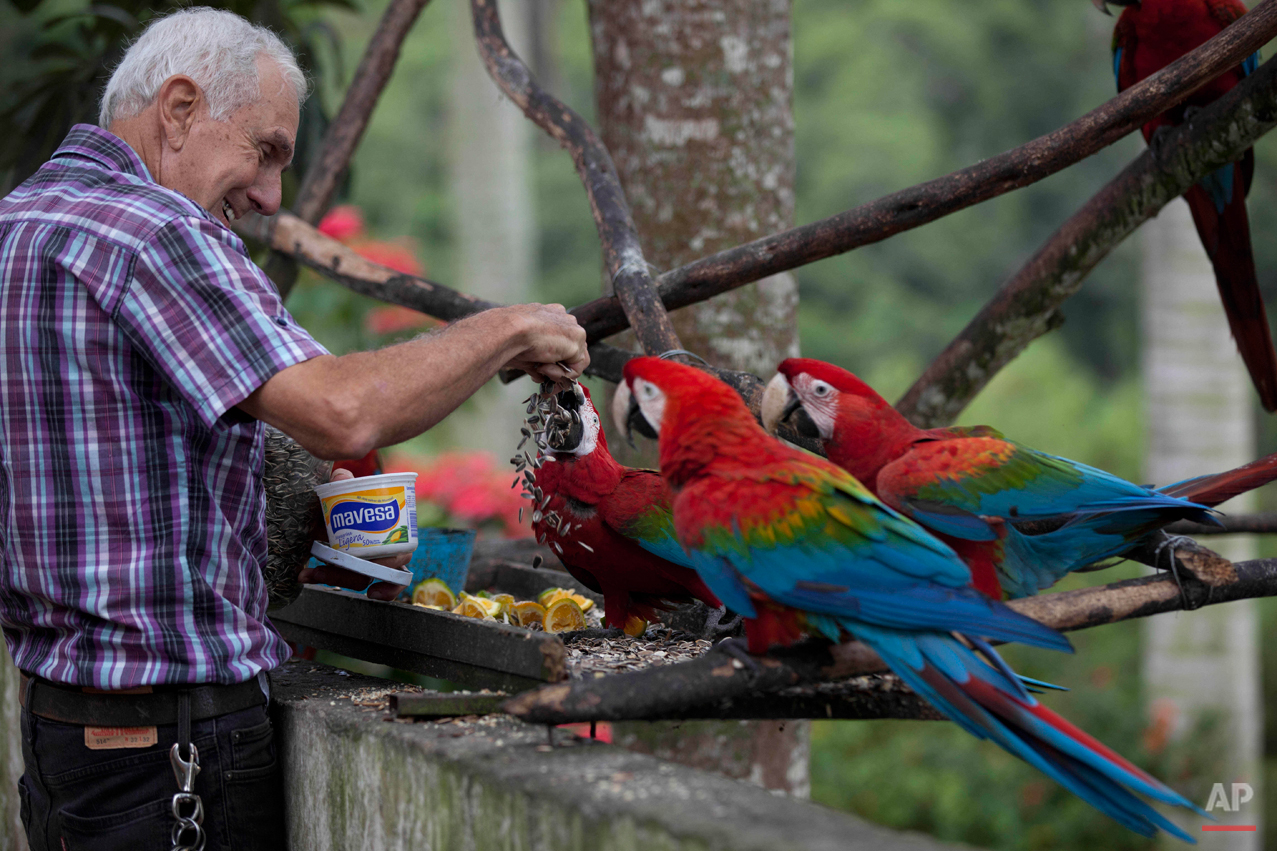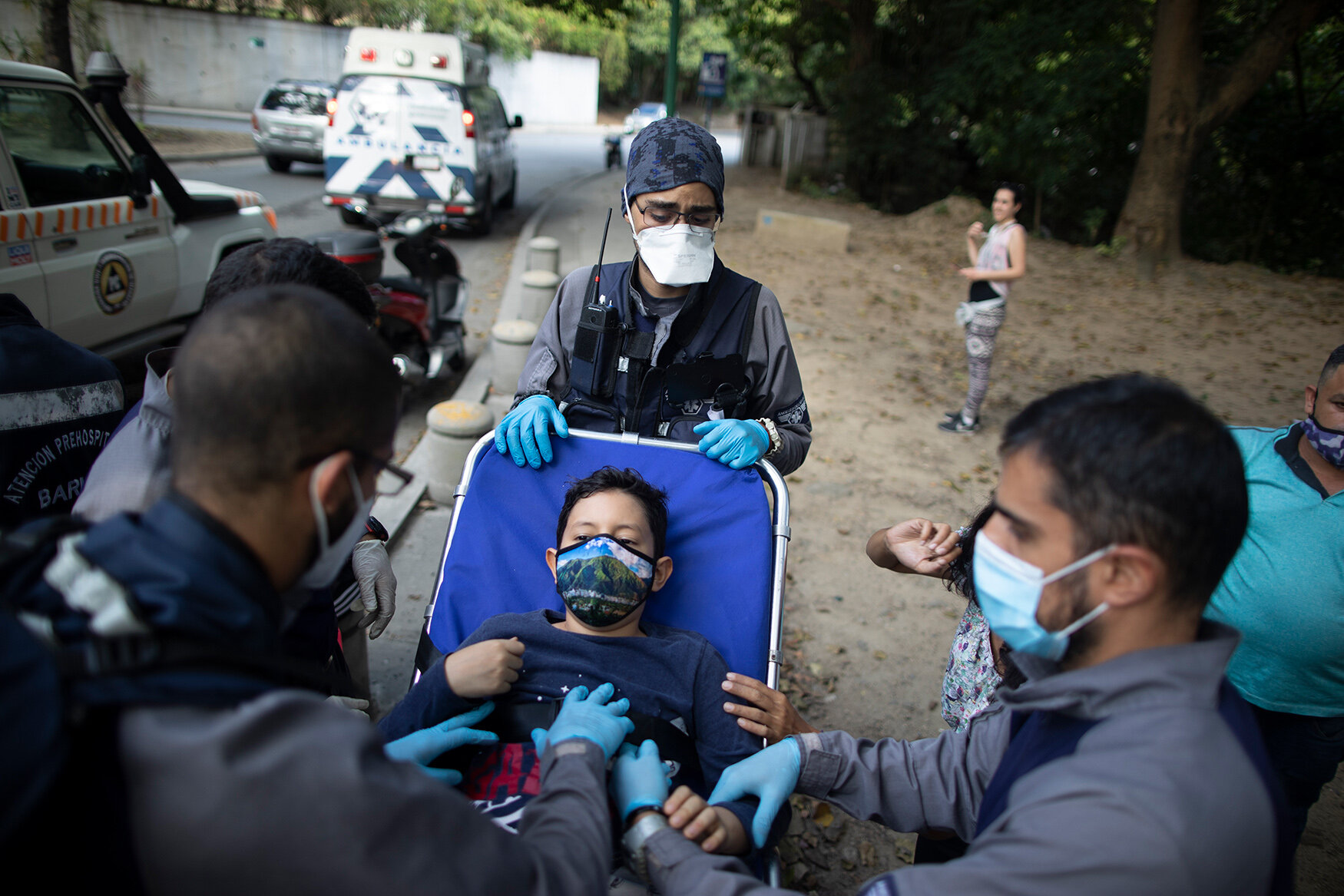Venezuela's beloved macaws

In one of the world's most hostile urban jungles, the spectacle of rainbow-colored tropical birds streaking across the late-afternoon sky has become a natural respite from rampant crime and choking pollution.
Macaws are thriving amid the high-rises and traffic of Caracas thanks to a group of amateur birders who feed them and watch out for their nests. Visitors to Venezuela's capital soon grow accustomed to lifting their heads at dusk and dawn to see the stately birds glide by, usually in a pair.
Some, like Ivo Contreras, even invite the parrots to stop by. He has built a circular platform with 58 feeder bowls on the roof of his apartment to attract macaws.
"For me, it's a pleasure to see them come every day ... to share a space with them where you can recharge and find harmony," said Contreras, who is a stylist for the Miss Venezuela beauty contest.
Wild parrots that escaped or were released are an increasingly common sight in metropolises around the world, from the cherry-headed conures of San Francisco's Telegraph Hill to the thousands of parakeets that have taken residence in London.
Caracas' signature bird is the blue-and-yellow macaw, a bird native to much of South America, though not to the valley that holds Venezuela's capital. Legend has it that it was introduced in the 1970s by Italian immigrant Vittorio Poggi, who says he nurtured a lost macaw and trained it to fly with his motorcycle as he cruised around his neighborhood.
He went on to release more than 100 of the birds, some of which he bought or bred and some of which were pets given to him.
The macaws are now a common sight on the ledges of high-rise buildings or perched on antennas. While solid figures don't exist, the population of macaws in Caracas is estimated to be several hundred.
Caracas residents are trying to preserve the birds' breeding places, said Miguel Lentino, scientific director of the Caracas-based Phelps Ornithological Collection.
"There is an attitude of defense and protection because everyone likes to see macaws near their homes, not in a cage," Lentino said.
Bird-lovers swap experiences and advice at meet-ups organized by "Macaws in Caracas," an informal group that has more than 2,000 members.
A group of gold-and-royal blue birds poked their heads through Vanessa Silva's window on a recent afternoon, as if saying, "I'm here, is anyone home?"
"I'd seen them flying when I was down on the street, and I thought, 'Oh how pretty,'" she said while a macaw ate out of her hand.
After they'd had their fill, the birds flew off against the setting sun.
Opening text from the AP news story, AP PHOTOS: Macaws bring harmony to Caracas' chaos, by Jorge Rueda
Visual artist and Journalist
















